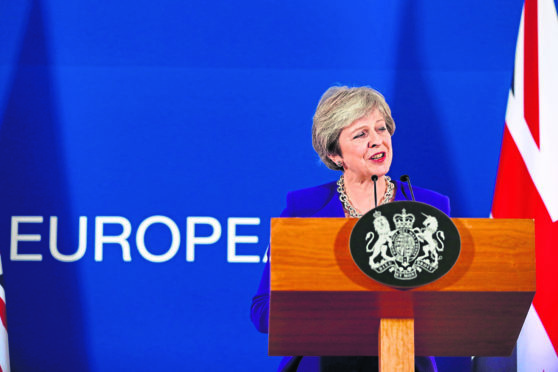Leadership means different things to different people, but it is something that we ‘bestow’ on an individual to make the difference.
And leadership is, amongst other things, both a challenge and a privilege. The challenge comes from the need to ‘take the people with you’ and the privilege comes from having the opportunity to lead people, employ professionalism and promote civility.
The world is of course a complex place and decision making can be far from an easy process. It sometimes feels that we are doing things right — improving operational performance, maximising revenues, applying legislation through regulation.
On occasion there is the need to do the right thing — set priorities, allocate resource, make decisions or fulfil an organisation’s vision. But there is a stark difference between the two positions: one is a function of management and the other is a commitment to leadership.
Last week we witnessed a young woman and her child having to endure unacceptable distress. The mother was a victim of rape by her child’s father.
The convicted rapist was being given access to the child through the application of process by the local council ‘insisting on father contact’. The Council was doing things right. The young woman had to abandon her right to anonymity as a rape victim to force this apparent thoughtless lunacy to be stopped by the leadership of the council.
No-one thought to even appreciate the need to do the right thing – because collective responsibility was seen to replace the need for leadership. As former chief prosecutor Nazir Afzal put it: “the law is but a blunt tool”.
This situation would have been avoided if the council had taken responsibility for its actions and accountability for its decision making. But we see this happening all the time, perpetuated by the courts, and in particular with regard to domestic violence. A lack of leadership is facilitating coercive control and emotional abuse.
Like a type of coercive control, our prime minister continues to talk at us – that only she is ‘doing things right’. Something only she understands. I suspect that most of the nation would like to understand by being properly informed on where the UK is in terms of a future.
Each morning I wake up in the hope that future looks prosperous because we have an effective government focused on the future well-being of the UK. In addition, the safeguards of Parliament ensure an openness and honesty that give us, the electorate, confidence in tomorrow. I wish the term Brexit had never needed to exist, not because of what it means, but rather what it has come to represent.
We find our prime minister attempting to educate an audience – the general public – who currently have no vote, whilst refusing to effectively engage with the ‘voting classes’ in the Houses of Parliament, relying on mantras, sound-bites and a total air of belligerence.
What has happened to democracy? Where are our guardians of national interest? Most importantly, where is the leadership that this country so desperately needs at a time where our national interest is being traded for political self-interest. Indeed, who is leading the national interest?
Instead, we are bludgeoned with mantras and catch-phrases; why can most parliamentarians not answer a question? The prime minister spent 100 minutes with the Parliamentary Liaison Committee on Thursday and didn’t answer one question posed – but instead patronised with stock answers and an obsession to be right. Why the contempt? More fundamentally, and as a public servant, is the public not entitled, as a minimum, to honesty and transparency?
But of course, there is purpose to this act of defiance by our political representatives – it provides distance for the politician. The culture secretary perhaps let the cat out of the bag over the weekend; when referring to “the three options remaining” (we seem to have lost one …): deal, no deal and “you (the electorate) got it wrong the last time – have another go!” The arrogance and contempt for democracy is jaw-dropping. But more importantly, it exposes the lie that the Prime Minister is interested in doing the right thing.
Rather her focus is to escape blame.
Most politicians today are displaying the worst kind of leadership – denial. More concerning is that future freedom of information challenges may expose that our government has deliberately attempted to mislead the UK as a nation.
Challenges over the publication of the full legal advice will be both insightful but change the nature of UK politics for ever; so sad that such a blunt tool has to be employed to achieve the openness we as a nation deserve. I have no doubt that our prime minister has always had our nation’s best interest at heart, but she has become detached from the basics of good leadership: honesty, openness, decisiveness and an aptitude to know when to do the right thing.
Of course, it is not unreasonable for you to level at me, ‘we don’t elect our politicians to lead, we elect them to deliver’. At present they are doing neither.
James Johnston is chair of the The Malt Whisky Trail and served as Station Commander for RAF Kinloss











